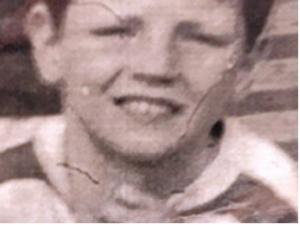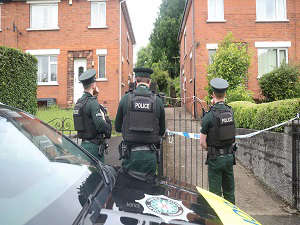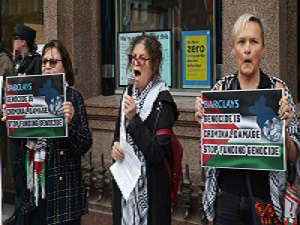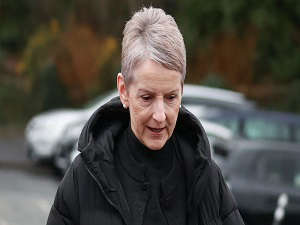
QRadio News
The killing of a boy shot by an army rubber bullet in Belfast in 1972 was not justified, a coroner has ruled.
The soldier who fired the baton round that fatally wounded 11-year-old Francis Rowntree used excessive force, coroner Brian Sherrard said in his preliminary findings.
Mr Sherrard said the soldier was not given any training in the use of the bullets or made aware that they were potentially lethal.
"There was no justification for the use of lethal force at the time that Francis was shot," Mr Sherrard told Belfast Coroner's Court.
"The force used was in excess of what was needed to achieve Soldier B's objectives."
Francis was the first person in the Troubles to die after being wounded by a rubber bullet.
The incident occurred in the Divis Flats area of the city on April 20. The child, who was a pupil at St Finian's Primary School, was shot in the head and died two days later of his wounds which included skull fractures and lacerations of the brain.
The incident happened amid claims a group of people were rioting and throwing stones at the soldiers in a disturbance in the area.
Outlining the preliminary findings, Mr Sherrard said he was confident Francis was not involved in rioting.
It has been disputed whether the boy was struck directly or hit by a ricocheting rubber bullet.
A coroner says the shooting of Francis Rowntree (11) in West Belfast was unjustified in 1972. The soldier was not trained in use of rubber bullets and the state knew they could be lethal before use in NI. Francis' brother Jim speaks to @qnewsdesk @pomuirigh pic.twitter.com/kQaOQmibK6
— David Hunter (@davidhunter7) November 17, 2017
Following an investigation by the Historical Enquiries Team in 2010, a fresh inquest into his death was ordered.
The soldier who fired the bullet has been granted anonymity during the inquest and was known only as Soldier B. He told the court he did not remember the exact day in question.
Eye witnesses, including a lieutenant instructing the soldiers, told the court that a crowd gathered around a vehicle carrying a number of soldiers which stopped in the area.
A disturbance followed in which some members of the crowd became hostile and threw objects including stones at the vehicle.
The court was told a number of youths were among the crowd, who had come to watch the disturbance out of curiosity.
The court was told that two rounds of rubber bullets were fired by a soldier into the crowd in a bid to disperse those present, and that one of the bullets hit the boy's head. No warning was given before the shots were fired.
He said the soldier was given the gun, which fired rubber bullets, without being made aware that the weapon could be lethal or given appropriate training in how it should be used.
Mr Sherrard said the Ministry of Defence should have been aware by the time of the incident that rubber bullets could cause serious harm, due to prior evidence emerging after tests were carried out using the guns on anaesthetised sheep which flagged up numerous concern about their potential impact.
A further test on skulls conducted four months prior to the 11-year-old's death showed three of five skulls were severely damaged by the bullets in one test exercise.
.@pomuirigh is Francis Rowntree's family solicitor and says the result of an inquest into the 11 year old's death will help many other families. pic.twitter.com/GQ8g2FvICI
— David Hunter (@davidhunter7) November 17, 2017
Mr Sherrard also said evidence suggested the guns which fired the rubber bullets were designed for use by soldiers to operate while standing up and holding them at waist height.
However, they were given to soldiers for use inside military vehicles in which they were in crouching positions due to the vehicles' height.
He said: "The state provided Soldier B with a lethal weapon without notifying him of its potential lethality or training him in its use.
"The absence of adequate training made it impossible for Soldier B to assess whether to use lethal force.
"I am satisfied that the established lethal risk was not adequately communicated to troops on the ground."
"He fired without warning into the crowd, which was not aimed at any individual."
The coroner also said he was confident that the boy had not been involved in any rioting on the death of the shooting.
He said: "I am entirely satisfied that Francis was not involved in any rioting nor did he intend to become involved in any. I am quite sure of that. It is clear he was there to observe the disturbance."
The coroner is due to consider further matters including the soldier's anonymity, before delivering his final findings in the inquest. He told the court he expects to give the full findings by the end of this year.


 Man remanded in custody charged with murder of Belfast pensioner
Man remanded in custody charged with murder of Belfast pensioner
 Public urged not to ‘rush to judgment’ over Belfast protest arrests
Public urged not to ‘rush to judgment’ over Belfast protest arrests
 Belfast Trust facing highest-level accountability process after critical report
Belfast Trust facing highest-level accountability process after critical report
 Man charged with murder of 71-year-old woman in Belfast
Man charged with murder of 71-year-old woman in Belfast
 ‘Significant deterioration’ in Eleanor Donaldson’s medical condition, court told
‘Significant deterioration’ in Eleanor Donaldson’s medical condition, court told